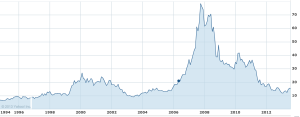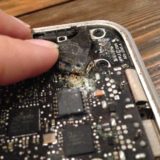Dear Nintendo: Wake Up
Nintendo has had a touch couple of years. While their stock price has improved over the last few months, it’s still a small fraction of the company’s 2008 peak. Sales have plummited amongst a lack of innovation, and as it has fallen behind in a world of tablets. Until a few bright spots this year, it seemed that the company had fallen asleep at the wheel, destined to crash and burn.
Is Nintendo Destined to be the next Blackberry
Nintendo’s offerings, like the $170 3DS are selling decently (200,000 this June), but are at a much lower point than they were just a few years ago. Like many other industries, portable gaming systems have been made obsolete in the face of tablets, smartphones, and other mobile devices. Is the question if Nintendo will go under, like Blackberry and many other before it, or when it will go under?
A few competitive advantages
Unlike Blackberry, I believe Nintendo can bounce back, because they’ve got a few things that set them apart from other companies that have faded. First of all, they have a reputation of excellence. They’ve been a part of the American and international childhood for 30 years. This reputation should provide a baseline of support for their products. Secondly, they own some of the most valuable game franchises out there. Mario, Mario kart, Pokemon, Zelda, and other Nintendo-owned brands have sold billions of copies (Mario, Super Mario, and Mario kart games alone have sold over a billion copies).
If they play the game right, Nintendo Can Thrive
There’s a strategy to selling gaming devices. It’s not just sell as many as you can for as high a price as you can. You need to keep lower barriers to entry, build attractive devices, drive game sales, sell accessories, and convince customers to upgrade. It’s not easy.
The first thing that Nintendo needs to do, which it is, with the recently announced 2DS, is lower the barrier to entry. Tablets, and smartphones already dominate the top end of the market, so Nintendo is shooting for the lower end, aimed as entertainment for kids. They’re aiming for the auxiliary device slot, instead of their initial aim to be the primary device. This is a good way to continue to drive game sales.
A Transition Device To Drool Over
As BB10 and Windows Phone 8 have proven, there isn’t room for a third operating system. iOS and Android rule the tablet scene. Nintendo needs to build a high-end, attractive tablet running on a custom flavor of the Android operating system. This will allow customers to stick to the Android platform, while offering a Nintendo-branded device. The selling point should be a custom, proprietary store, selling full Nintendo games (in a similar manner to the kindle store), like Mario Kart, Super Mario, and Pokeman, redesigned for Android.
The 2DS is good for maintaining the brand in the short term, but in order to grow, Nintendo NEEDS to get into the tablet market.
An Exit From the Gaming Console Business
This Nintendo tablet should also mark the exit of Nintendo from the console business. From now on, Nintendo will live on through Nintendo hardware running on other platforms. Nintendo will also live on as a gaming company. On the agenda after this will possibly be a more affordable Android tablet than the original premium one, and possibly a Windows tablet with similar functionality.
Leveraging existing platforms is critical to Nintendo’s future domination.
A Bright Future
This is all theoretical. Odds are that Nintendo isn’t leaving the console business, and that they’re not going to create an Android tablet. There’s even a 30-40% chance that they’ll fizzle out and die as a brand. Still, thanks to their strong proprietary array of games, many of which have very loyal followings, I think that they could make a comeback.









